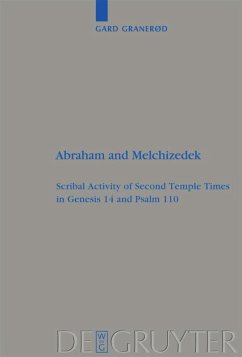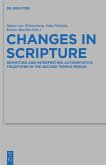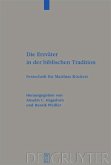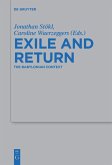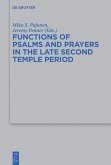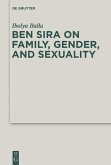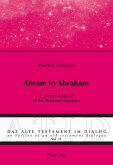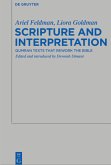This book, emphasizing Genesis 14 and Psalm 110, contributes to the history of composition of the patriarchal narratives in the book of Genesis and to the history of theology of the Second Temple period.
Genesis 14 was added on a late stage and in two steps: first, Genesis 14_ and later, the so-called Melchizedek episode (ME, vv. 18-20). Genesis 14 is the result of inner-biblical exegesis: both Genesis 14_ and the later ME originated from scribal activity in which several earlier biblical texts have served as templates/literary building blocks.
As for Genesis 14_, in particular three text groups were important: the Table of Nations, the wilderness wandering narratives and annals from the Deuteronomistic History. As for the ME, it is an example of haggadic exegesis presupposing and without any prehistory independent of its narrative framework. ME is the result of an assimilation between two texts, Genesis 14_ and Psalm 110, which assumedly at one point were read as a narrative and a poetic version respectively of Abraham's war with the kings.
Genesis 14 has no value as a source to the history of the patriarchal era and to the religion of pre-Israelite Jerusalem. In contrast, it shows how post-exilic scribes' painstaking study of biblical texts resulted in the creation of new biblical texts.
Genesis 14 was added on a late stage and in two steps: first, Genesis 14_ and later, the so-called Melchizedek episode (ME, vv. 18-20). Genesis 14 is the result of inner-biblical exegesis: both Genesis 14_ and the later ME originated from scribal activity in which several earlier biblical texts have served as templates/literary building blocks.
As for Genesis 14_, in particular three text groups were important: the Table of Nations, the wilderness wandering narratives and annals from the Deuteronomistic History. As for the ME, it is an example of haggadic exegesis presupposing and without any prehistory independent of its narrative framework. ME is the result of an assimilation between two texts, Genesis 14_ and Psalm 110, which assumedly at one point were read as a narrative and a poetic version respectively of Abraham's war with the kings.
Genesis 14 has no value as a source to the history of the patriarchal era and to the religion of pre-Israelite Jerusalem. In contrast, it shows how post-exilic scribes' painstaking study of biblical texts resulted in the creation of new biblical texts.
"[Es] handelt [...] sich doch um eine interessante und anregende Arbeit. Besonders zu begrüßen ist, daß der Vf. auch versucht, die materiale Basis für die Textentstehung in seine Untersuchung mit einzubeziehen." -- B. Ego in: Zeitschrift für die alttestamentaliche Wissenschaft 2011, Band 123, Heft 1
"Wer sich in Zukunft mit der Figur Melchisedeks bei Juden und Christen befasst, findet in der vorliegenden Arbeit eine gründliche und klare These zu deren biblischem Ursprung, in der zugleich die längst unübersichtlich gewordene Diskussion kenntnisreich aufgenommen und in ihren Kernpunkten geordnet dargestellt wird. Ob sich die These einer Assimilation von Ps 110 mit Gen 14* bewährt, wird die weitere Diskussion zeigen. Dazu aber hat Granerød einen fortan unverzichtbaren Beitrag geleistet." -- Christfried Böttrich in: Journal for the Study of Judaism 43/2012
"Wer sich in Zukunft mit der Figur Melchisedeks bei Juden und Christen befasst, findet in der vorliegenden Arbeit eine gründliche und klare These zu deren biblischem Ursprung, in der zugleich die längst unübersichtlich gewordene Diskussion kenntnisreich aufgenommen und in ihren Kernpunkten geordnet dargestellt wird. Ob sich die These einer Assimilation von Ps 110 mit Gen 14* bewährt, wird die weitere Diskussion zeigen. Dazu aber hat Granerød einen fortan unverzichtbaren Beitrag geleistet." -- Christfried Böttrich in: Journal for the Study of Judaism 43/2012

